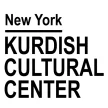Director Nevine Gerits greets NYKFF7
 NYKFF7 is thrilled to screen the film The Pasha, My Mother, and I, directed by Nevine Gerits.
NYKFF7 is thrilled to screen the film The Pasha, My Mother, and I, directed by Nevine Gerits.
Nevine Gerits has sent her greetings to the Film Festival—you can watch the video here. It’s in English.
Nevine Gerits was born to a Kurdish mother and a Belgian father in Brussels. Her mother, Pervine Jamil, ran the Kurdish Bureau in the Belgian capital and published a monthly newsletter about the Kurdish struggle for a free Kurdistan. Nevine grew up listening to her mother’s stories.
Gerits went on to study film at the Brussels School of Arts, Sint Lukas. In 2000 she entered the world of television, working with public and commercial production companies. For fifteen years she worked as a researcher, editor, reporter, and finally as a director.
In 2017 she had a writing residency at the Ardèche Images documentary school. In 2019 she was a cinematographer for the film Cold Case Hammarskjöld.
Gerits had been filming her mother for many years, documenting her activities. In The Pasha, My Mother, and I, her first feature, she weaves that footage into an exploration of her personal journey. She revisits her deep and rich Kurdish family legacy, which dates back to Diyarbakir at the end of World War I. At the same time, as a diaspora Kurd, she grapples with the question of whether that legacy will end with her, and wonders if and how she can carry it on. Her questions become pressing as she gives birth to her first child and ponders the importance of building a Kurdish identity in the next generation.
Director’s statement:
“Through my own family I want to investigate the difficulties of inheritance. Within my family the issue has become even more relevant since my activist mother is getting older and is looking towards us, my sister and I, to continue her work, her legacy. Over the past 20 years I have asked myself many questions related to my mother; who is she really and how did she come to be that way? As the daughter of a very passionate Kurdish activist, I have always had a love/hate relationship with Kurdistan. Gradually I began to realize that I knew very little about my mother’s past, her origins. She has probably talked about it often, but our dual mother-daughter relationship resulted in selective listening from my side.
“Today I want to stop time and look back to finally be able to look forward, now that the realization is fully there that I am the last in line. To preserve our identity, my family’s legacy has been passed down from generation to generation for over a century. How do I cope with this? Meanwhile, I am convinced that this story is relevant to many. A reflection on identity for myself, but more so for all who recognize themselves in this story. How does one deal with the high expectations that are passed on from generation to generation?”















